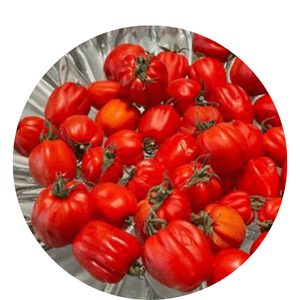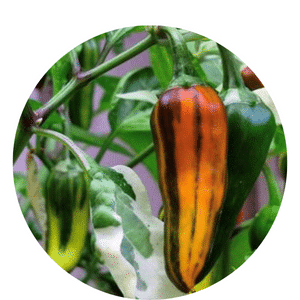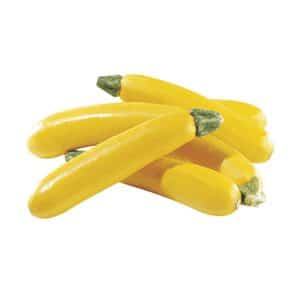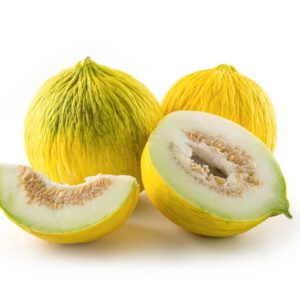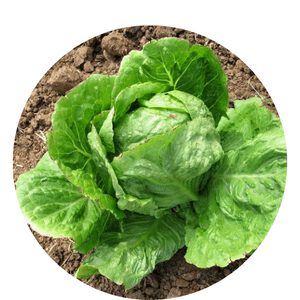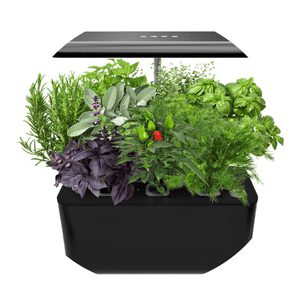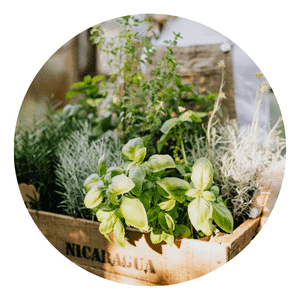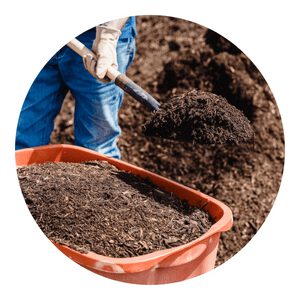Cow manure as a natural fertilizer for a vegetable garden
Fertilizing a vegetable garden is essential for growing healthy and bountiful crops.
A natural and inexpensive way to do this is by using cow manure as fertilizer.
Cow manure is a nutrient-rich organic fertilizer that has many benefits for plants, from improved soil structure to increased disease resistance and growth.
When used correctly, cow manure can help to produce an abundance of vegetables in any size garden.
Cow Manure Menu
Benefits of using cow manure as fertilizer
Cow manure is an excellent natural fertilizer for a vegetable garden. It provides essential nutrients that help plants grow, and it’s easy to get.
Cow manure has many benefits over synthetic fertilizers, such as being more environmentally friendly and cost effective.
Not only does cow manure provide necessary nutrients like nitrogen, phosphorus and potassium, but it also helps improve soil structure.
This can make the soil less compacted, allowing oxygen to reach the roots of your plants. Additionally, cow manure contributes beneficial microorganisms which help with nutrient cycling in the soil.
These microbes also act as a barrier against disease-causing fungi and bacteria that could harm your garden’s health.
Finally,cow manure is slow-releasing so you don’t have to worry about over fertilizing your plants or having toxic build ups in your soil.
All these benefits make cow manure an ideal fertilizer choice for any vegetable garden!
History of using cow manure as fertilizer
For centuries farmers have taken advantage of these properties to nourish their crops and gardens with natural fertilizer.
The early use of cow manure dates back to the ancient civilizations in Egypt, India and China who were among the first to cultivate crops with the aid of animal manure.
During medieval times in Europe, farmers began using cow dung as a fertilizer for their vegetable gardens.
By mixing it with straw or hay they created compost piles that provided an abundant supply of nutrients for their plants.
Traditional use of cow manure as fertilizer
Organic farmers have utilized cow manure as a natural fertilizer for many years due to its cost-effectiveness and ability to provide essential nutrients to plants.
In addition to being abundant in organic matter, cow manure also contains microorganisms that help break down organic matter into available forms for plants.
This helps provide balanced nutrition for vegetables growing in the garden.
Cow manure also helps reduce erosion by binding together soil particles and increasing water infiltration into the ground.
Modern use of cow manure as fertilizer
Cow manure has been used for centuries as a natural fertilizer to grow vegetables.
But modern-day scientists have discovered that cow manure can be even more beneficial when used as fertilizer in a vegetable garden.
Not only is it full of essential nutrients like nitrogen, phosphorus, and potassium, but it’s also an organic material that helps to improve the soil structure and drainage.
Recent research suggests that using cow manure as fertilizer can help increase crop productivity by up to 25 percent.
This is due to the fact that cow manure contains beneficial microorganisms which help promote better root development in plants, leading to increased nutrient uptake and improved yields.
Cow manure also provides an excellent source of slow-release nitrogen which helps stimulate healthy growth in crops such as tomatoes, cucumbers, and peppers.
Green grass and fertile soil, A garden growing rich and robust. Enrichment that is natural, Coming from a cud-chewing host. Cow manure as fertilizer you see, The life of the garden it will enhance. It's more than just a smelly byproduct, Giving a boon to every plant.
Chappy The Gardener
Composting cow manure
The components in cow manure are essential for the growth of plants, as well as providing a number of other benefits such as improved soil structure and increased water retention.
Creating compost from cow manure is relatively easy, provided you have access to it.
The process involves collecting the fresh manure from cows and mixing it with carbon-rich materials such as leaves or straw in order to enhance the breakdown of the material into usable nutrition.
Once your mix has been fully broken down, it can be applied directly to your garden or used to make liquid fertilizer with additional ingredients such as water or molasses.
The process of composting cow manure
Composting cow manure is an effective, natural way to fertilize a vegetable garden. It is easy to do and provides important nutrients for the soil without causing any harm to the environment.
Cow manure has been used as a fertilizer in gardens for centuries and, when composted correctly, can be an excellent addition to any home vegetable patch.
The process of composting cow manure begins with collecting fresh dung from the pasture or barn and placing it in a compost bin.
The next step is adding organic material such as straw or sawdust to ensure that the manure breaks down properly.
Once this is done, regular aeration must be carried out on the pile by turning it over periodically.
This helps introduce oxygen into the mix and helps speed up decomposition of the organic matter.
How composting improves the quality of cow manure as fertilizer
Composting cow manure is an effective way to improve the quality of cow manure as a natural fertilizer for vegetable gardens.
Composting breaks down organic matter, such as cow manure, into humus-rich soil which can be used for fertilizing plants.
Not only does composting reduce the amount of waste in landfills, it also significantly increases the amount of nutrients available to plants from cow manure.
Compost not only improves the fertility of soils but also its chemical and microbial properties.
As a result, composted cow manure has an increased nitrogen content and higher levels of essential nutrients like potassium, phosphorus and magnesium that help plants grow healthier and more vigorous than those grown with non-composted manure.
Compost can also improve soil structure by increasing its water holding capacity due to increased levels of organic matter in the soil.
Application Methods
Cow manure is rich in nitrogen, phosphorus and potassium—all necessary nutrients for growing healthy veggies. It can be applied directly to the soil or added as compost when planting new seedlings or transplants.
For established gardens, tilling the manure into the top few inches of soil helps encourage root growth and discourage weeds from taking over your crop.
Manure tea is also a great option for adding nutrients to your soil; simply steep fresh or dried cow manure in water for 24 hours before applying directly onto plants and around their roots with a watering can.
Top dressing
Top dressing is the process of applying a thin layer of manure on top of existing soil.
When done correctly, it helps replenish essential minerals that have been lost over time due to heavy rain or extreme temperatures.
It also prevents soil erosion and reduces weed growth by blocking sunlight from reaching the roots of unwanted plants.
Additionally, when applied during wet weather it will help retain moisture in the soil and reduce water runoff from gardens.
Mixing with soil
Before adding cow manure to your garden, make sure you properly mix it with soil for optimum results.
If not mixed correctly, the manure could burn or damage your plants.
Mixing equal parts of composted cow manure and topsoil will give you a good balance of nutrients while keeping your plants safe from potential harm caused by over-fertilization.
Foliar application
Foliar application is a method of applying fertilizer directly to the foliage of plants.
It is a great way to encourage healthy growth in vegetable gardens, and using cow manure as a natural fertilizer can be especially beneficial.
Cow manure provides essential nutrients that help vegetables thrive, such as phosphorus, potassium and nitrogen.
Foliar application makes it easier for these nutrients to reach the plant’s leaves and roots by saturating them with an even coating of fertilizer.
This method requires careful attention, however, as too much or too little can cause damage to delicate plant tissues.
When used correctly, foliar application of cow manure can give your vegetable garden the extra boost it needs for maximum growth potential.
Nutrients in cow manure
Cow manure has long been used as a natural fertilizer for vegetable gardens and other plants.
It is an excellent source of valuable nutrients that can help your garden thrive.
Not only is cow manure rich in nitrogen, phosphorus, and potassium, it also contains numerous trace minerals like zinc, copper, and manganese.
These essential elements are necessary for healthy growth in vegetables and other crops.
Nitrogen helps to create strong leaves while phosphorus aids in the production of flowers or fruits by promoting root development.
Potassium increases disease resistance in plants and improves water retention.
Trace minerals like zinc help strengthen the plant’s defenses against pests and weather damage.
Using cow manure can provide all these benefits to your vegetable garden without any need for chemical fertilizers or pesticides.
Nitrogen
Nitrogen is an essential nutrient for plant growth and development, and it is often found in fertilizers.
As many gardeners are looking to reduce their environmental impact, using cow manure as a natural fertilizer can be a viable alternative.
Cow manure is a great source of nitrogen, as well as other essential nutrients like phosphorus and potassium.
This type of fertilizer is readily available on farms or other agricultural areas where cows are raised, providing gardeners with an easy way to get the nutrients their gardens need without relying on chemical-based fertilizers.
Cow manure also has the advantage of being more affordable than chemical-based options.
Plus, its high nitrogen content boosts soil fertility by encouraging good bacterial populations that help break down organic matter into accessible nutrients for plants to absorb.
In addition to providing nitrogen, cow manure also adds beneficial microbes that help promote healthy soil structure and increase water retention capacity.
Phosphorus
Phosphorus is an essential element for plants, playing an integral role in their growth and development.
When used as a natural fertilizer on vegetable gardens, it can have a dramatic effect on plant health.
Cow manure is one of the most effective sources of phosphorus available for gardeners looking to add this important nutrient to their soil.
Cow manure is especially beneficial for vegetable gardens, as it not only contains calcium but also other essential micro-nutrients such as phosphorus, potassium and nitrogen which are key to healthy plant growth.
It has been proven that when cow manure is combined with other organic matter, like compost or leaf litter, it breaks down over time into nutrients that can be easily absorbed into the soil and ultimately benefit plants directly.
What’s more, cow manure also helps improve water retention in the soil—a major plus when growing vegetables!
Potassium
Potassium is one of the essential nutrients that plants need to grow and thrive.
It plays an important role in the development of strong root systems, the production of flowers and fruit, and helps plants resist disease.
For gardeners looking for a natural way to fertilize their vegetable gardens, cow manure may be an ideal solution.
Cow manure provides a rich source of nitrogen, phosphorous and potassium which are all essential nutrients for healthy plant growth.
Potassium in particular helps strengthen cell walls, increases resistance to cold temperatures and drought stress, enhances flavor in vegetables like tomatoes and peppers, increases photosynthesis rates, as well as improving water retention capabilities.
Using cow manure as a fertilizer will add organic matter to your soil which improves aeration and drainage while also providing an abundant supply of available potassium for your vegetable garden plants.
Micro-nutrients
Micro-nutrients are an essential component of a healthy vegetable garden.
Without them, plants often struggle to reach their full potential and produce the best harvests possible.
Cow manure is one of the most widely used natural fertilizers for gardens – it’s rich in macronutrients, such as potassium and nitrogen, as well as micronutrients like zinc, iron and boron.
These micro-nutrients are important for plant growth, particularly in soil that has become depleted due to over-farming or climate change.
They provide key minerals needed by plants to carry out vital processes like photosynthesis and nutrient uptake from the soil.
This means that applying cow manure fertilizer can help ensure your garden is getting all the nutrients it needs to grow successfully.
Best vegetables to grow with cow manure
Growing vegetables in a vegetable garden is a great way to enjoy fresh and tasty produce, but it can also be a lot of work.
One key to making sure your plants grow as healthy and robustly as possible is choosing the right fertilizer.
Cow manure is one of the best fertilizers for vegetable gardens because it provides essential nutrients that help plants develop strong root systems, lush foliage, and abundant fruits or vegetables.
In addition, cow manure has several other benefits that make it an ideal choice for any vegetable garden.
Here are some of the best vegetables you can grow with cow manure:
Tomatoes
Tomatoes are one of the most popular vegetables that can be grown in a home garden.
They are flavorful, versatile, and easy to grow. However, success with tomatoes requires nutrient-rich soil and plenty of water.
To ensure that your tomato plants get off to a strong start, consider using cow manure as natural fertilizer for your vegetable garden.
Cow manure is an organic material made up of nitrogen, phosphorus, potassium and other nutrients essential for healthy plant growth.
When used as a fertilizer for tomato plants, it helps promote long-term soil health by boosting the amount of valuable organic matter in the soil.
Additionally, cow manure helps to improve drainage and aeration which is especially beneficial during periods of heavy rain or drought.
By adding this natural fertilizer to your vegetable garden you can give your tomatoes the boost they need for successful growth!
Peppers
Peppers are a popular vegetable often used in Mexican and Italian cuisine.
Packed with flavor and texture, they provide an excellent source of nutrients like vitamins A and C, along with dietary fiber.
To ensure that your peppers come out tasting their best, it is important to use the right fertilizer.
Cow manure can be an effective natural fertilizer for pepper plants. Not only does cow manure add necessary nutrients to the soil, but it also helps promote aeration in the soil which will help vegetables grow faster and stronger.
Additionally, because cow manure is high in nitrogen content, it makes for an ideal fertilizer when growing peppers as this nutrient helps stimulate growth within the plant itself.
To get the most out of your pepper plants using cow manure as a fertilizer, always remember to mix it into your soil about two weeks before planting season begins.
Cucumbers
Cucumbers are a quintessential garden vegetable that can be used in many different recipes.
They thrive in warm, humid climates and require lots of sunlight and water to grow.
But did you know that cow manure can be used as a natural fertilizer for cucumbers?
Cow manure is an excellent source of organic matter and provides essential nutrients like potassium, phosphorus, nitrogen, and other trace minerals for plants.
Cow manure is easy to use as a fertilizer for cucumbers.
Simply mix it into the soil before planting or apply it directly on top of the soil around each plant.
The nitrogen content found in cow manure helps promote leafy green growth and encourages healthy fruit production.
Additionally, its slow-release properties allow cucumber roots to absorb nutrient gradually over time rather than all at once which prevents burning or leaching away from the root zone.
Squash
Squash is an incredibly versatile and nutritious vegetable that can be used in a variety of dishes.
From traditional favorites like summer squash and zucchini, to winter squash varieties like butternut and acorn, this is one vegetable that can be enjoyed year-round.
To ensure your squash plants remain healthy and productive, it’s important to provide them with the right nutrients – including cow manure as a natural fertilizer!
Cow manure contains nitrogen, phosphorus, potassium, magnesium and other essential minerals which makes it an ideal option for giving your squash plants the boost they need.
It’s also great for improving soil structure while providing a steady supply of organic matter to the garden over time.
With proper application of cow manure as a natural fertilizer you can look forward to big yields of delicious squash throughout the growing season!
Melons
Melons are a juicy, sweet fruit that can be found in many different varieties.
Many gardeners enjoy growing melons as part of their vegetable garden because of their unique flavors and attractive appearance in the garden.
Additionally, its high nitrogen content will help make sure your melons are plump, juicy, and flavorful!
With proper care and application of cow manure fertilizer for your vegetable garden, you’ll be able to enjoy delicious homegrown melons all season long.
Leafy greens
Leafy greens are an important part of a healthy diet, but growing them in your own vegetable garden can be tricky.
If you’re looking for natural fertilizer to give your leafy greens the boost they need, cow manure is an excellent option.
Not only is it effective, but it’s also cheap and easy to apply.
Cow manure offers many benefits that make it ideal for helping grow leafy green vegetables like kale and spinach in your backyard vegetable patch.
It contains essential nutrients like nitrogen, phosphorus, and potassium that help promote robust growth in plants.
In addition to providing the necessary nutrition to the soil, cow manure helps improve its structure by adding organic matter like humus which helps retain moisture for healthier roots and stems.
Root vegetables
Root vegetables are an essential part of any vegetable garden.
Not only do they provide a healthy source of nutrition, but some root vegetables also have the added benefit of being able to thrive in soils amended with cow manure.
When used as a fertilizer for root vegetables, cow manure can help ensure larger harvests by improving drainage, aeration and soil fertility.
It also helps increase organic matter in the soil which encourages beneficial microorganisms such as earthworms and fungi, aiding in plant growth and development.
When applying cow manure as a natural fertilizer, it’s important to remember that it needs time to break down before it can be absorbed by the roots of your vegetable plants.
How to prepare cow manure for fertilizer
Cow manure is one of the most useful and natural fertilizers available to vegetable gardeners. It’s free, abundant, and rich in nutrients that help vegetables grow strong and healthy.
Preparing cow manure for use as fertilizer is a simple process that anyone can do with minimal effort.
Here are some tips on how to get the most out of your cow manure fertilizer.
First, it’s important to age the manure before using it in your garden.
Ageing releases nitrogen from the fresh manure into the soil, making it easier for plants to absorb.
To age the manure, simply pile it up in a sunny location outdoors for about six months before you plan on using it in your garden bed.
During this time, be sure to regularly turn over the pile so that all sides receive sunlight and air exposure for optimal ageing.
Ageing process
Ageing is an inevitable process that all living creatures experience.
As individuals age, their physical, cognitive and emotional abilities tend to decline over time.
While the ageing process is natural and cannot be prevented, there are various ways to help slow it down.
One way of doing this is by engaging in activities that promote good health and wellbeing – such as gardening using natural fertilizers like cow manure.
Using cow manure as a fertilizer helps increase the soil’s nutrient content, resulting in healthier plants with more robust yields.
It also helps reduce the need for chemical-laden fertilizers which can be hazardous for human health.
Furthermore, gardening is a great way to stay active and boost mood levels; activities like digging, planting and weeding can provide a sense of accomplishment that contributes to overall wellbeing during one’s later years.
Mixing with other organic matter
It is full of vital nutrients such as nitrogen, phosphorus, and potassium that are essential for healthy plant growth.
Not only does it nourish the soil but when mixed with other organic matter it can be an even more powerful tool in achieving lush and bountiful yields from your vegetable garden.
Mixing cow manure with other organic material like compost or leaves will help to create a balanced fertilizer blend that can be applied directly to garden beds.
The combination of these materials helps aerate the soil and prevent it from becoming compacted over time, allowing water and oxygen to penetrate down into the roots of plants where they are most beneficial.
Additionally, adding this mixture also improves drainage which helps reduce the risk of waterlogging that can lead to root rot in vegetables planted in wet conditions.
Testing cow manure for nutrient content
Before applying cow manure to a garden, however, it’s important to test the manure for nutrient content.
Various tests exist that measure the amount of nitrogen, phosphorus, and potassium present in cow manure.
These three essential nutrients are necessary for optimal growth of plants in the garden.
In addition to testing for these three major nutrients, it is also important to consider other elements such as calcium, magnesium and sulfur present in the manure before applying it to your garden soil.
Testing cow manure for nutrient levels ensures that your vegetables will get just the right amount of nourishment from this natural fertilizer without risking over-fertilization or soil contamination due to excess levels of certain elements or compounds found in cow dung.
Precautions and Safety Measures
Although cow manure is an excellent and nutrient-rich option for organic gardening, it is important to remember that with any type of soil amendment there are certain precautions and safety measures that should be taken into consideration prior to application.
When using cow manure as a fertilizer, gardeners should always wear protective gear such as gloves and a mask to ensure they limit their exposure to potential contaminants in the soil.
Additionally, they should take special care when applying cow manure near water sources given its high nitrogen content which could potentially cause water contamination if not handled properly.
Handling cow manure
Many gardeners prefer cow manure as a natural alternative to synthetic fertilizers, as it is easy to obtain and apply.
The key to successful use of cow manure as a fertilizer lies in proper handling and application.
It must be aged correctly so that the heavy metals are broken down and it can provide maximum benefit to plants without causing harm.
Additionally, the manure should be applied at recommended rates, spreading evenly over the garden area or mixing into the soil prior to planting.
Applying too little will not give the desired results while applying too much will cause an imbalance of nutrients in the soil which can result in plant damage.
Using cow manure in organic gardening
Organic gardening is a popular way to cultivate vegetables, fruits, and other plants without the use of synthetic fertilizers or pesticides.
One natural fertilizer that has been used for centuries is cow manure.
Cow manure is an excellent source of essential nutrients needed by plants to reach their full potential. It also provides a source of organic matter that helps break up clay soils and improve water retention in sandy soils.
Using cow manure as part of an organic garden regime can help create nutrient-rich soil, which will result in healthy, robust plants with increased yields.
The nitrogen content of cow manure helps promote lush foliage growth while the phosphorus increases root development and flowering capabilities.
Additionally, the addition of this natural fertilizer encourages microbial activity in the soil which can further benefit plant growth by providing additional aeration and improving drainage.
How much cow manure should I use for my vegetable garden?
Cow manure is an ideal natural fertilizer for your vegetable garden because it’s full of nutrients that help plants grow.
But how much cow manure should you use?
That depends on several factors, such as the size and type of plants in your garden and the soil quality.
To get the best results from using cow manure as a fertilizer, here are some tips to help you make informed decisions about how much to use.
First, analyze your soil quality with a soil test kit.
This will give you an indication of the nutrient levels in your soil so you can adjust accordingly when adding cow manure.
Second, consider what kind of vegetables are going to be planted – some plants require more nitrogen than others – and choose a type of manure accordingly.
Can I use cow manure on my lawn?
Using cow manure on your lawn will help produce healthier grass and provide other benefits such as improved soil fertility, increased water retention, and improved aeration.
It is important to note that you should not use too much cow manure or the nitrogen content could burn your grass.
As long as you apply the right amount of fertilizer in the right way, you can reap all the benefits cow manure provides for your lawn without any negative effects.
How often should I fertilize my vegetable garden with cow manure?
When used correctly, cow manure provides beneficial nutrients to vegetable gardens and helps promote healthy plant growth.
But how often should it be applied?
For best results, gardeners should fertilize their vegetable gardens with cow manure once or twice a year.
The most important time to apply the fertilizer is in early spring when plants are just starting to grow.
This gives them the boost they need to produce strong, healthy foliage and fruits throughout the growing season.
During late summer or fall, some gardeners may wish to apply a second dose of cow manure as the weather begins to cool off and plants start winding down for winter dormancy.
Gardeners should always use caution when applying cow manure as a natural fertilizer for their vegetable gardens.
Can I use cow manure if I am growing fruits?
Cow manure has long been known as an excellent natural fertilizer for vegetable gardens.
But is it right to use when cultivating fruit trees? The answer is yes!
Cow manure can be used as a natural fertilizer for fruit trees and other forms of edible crops with great success.
The benefit of using cow manure as opposed to chemical fertilizers, is that the organic material helps improve soil structure by increasing the availability of essential nutrients such as nitrogen, phosphorus and potassium.
These are all critical components for healthy root and foliage growth in plants.
Furthermore, the microorganisms found in cow manure assist in breaking down organic matter into plant-available nutrients, which further promotes better absorption by the plant’s root system.
In conclusion, cow manure is a very effective and natural fertilizer for vegetable gardens.
It is inexpensive, easy to obtain, and contains the necessary nutrients that vegetables need to thrive.
Additionally, cow manure helps to increase soil fertility and improve water retention in the soil.
Not only does it make vegetables healthier, but it also provides additional benefits like beneficial insects and improved soil structure.
Click To Grow
Helps Us Grow – Share If You Like












